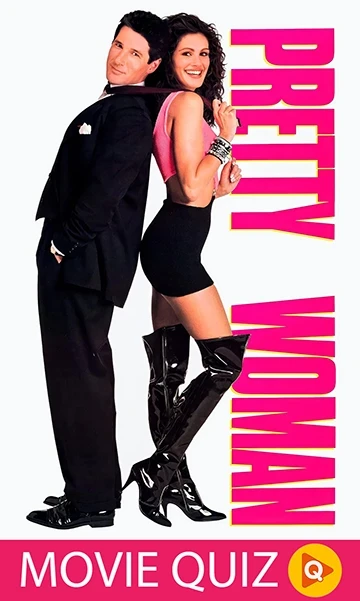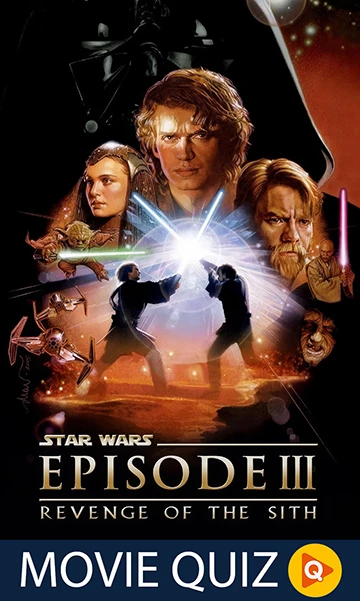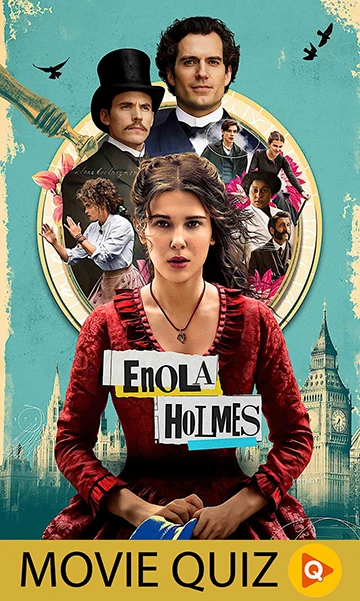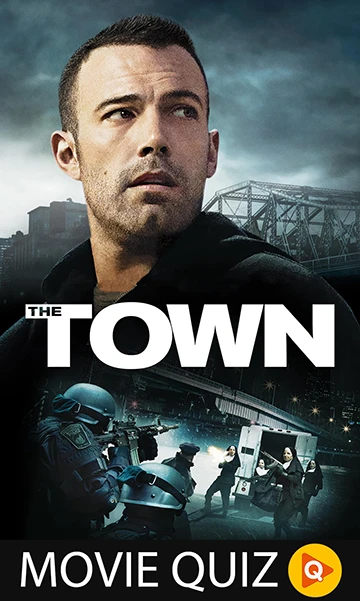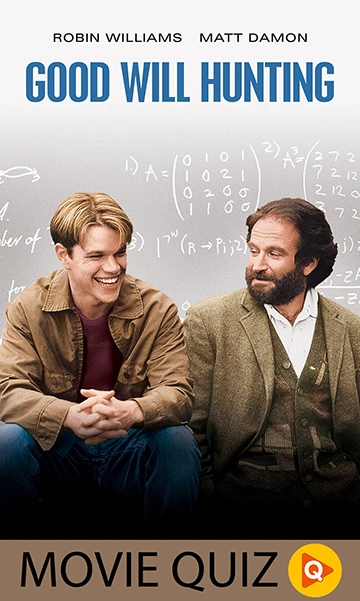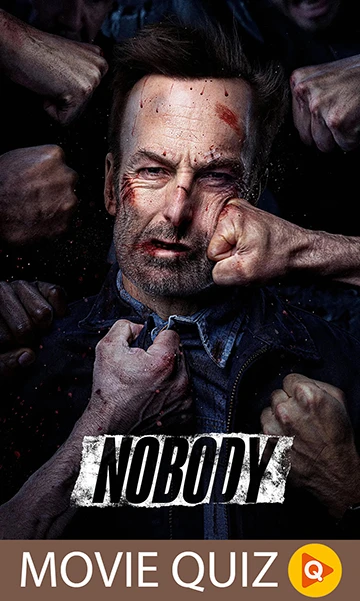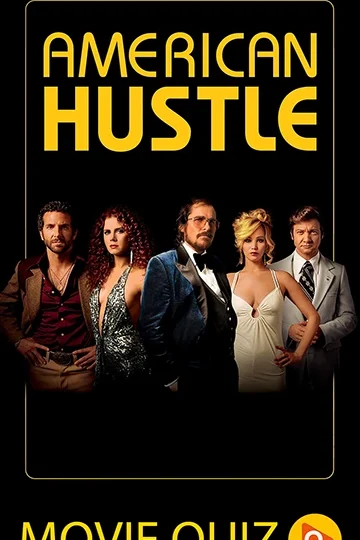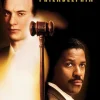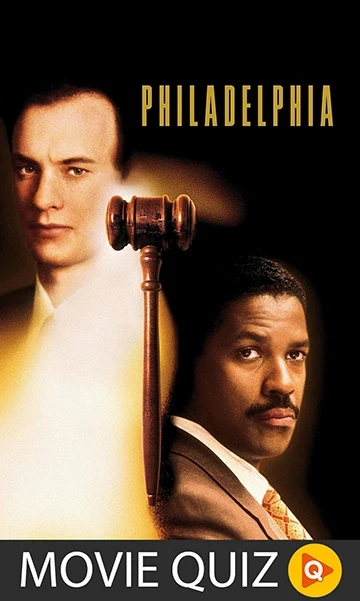
Philadelphia (1993) is not just a courtroom drama — it’s a groundbreaking and deeply emotional film that brought the AIDS crisis and LGBTQ+ discrimination into mainstream Hollywood storytelling. Featuring a powerful Oscar-winning performance by Tom Hanks and an unforgettable role by Denzel Washington, the movie remains a landmark moment in film history and social justice awareness.
Are you ready to test your knowledge of this cinematic milestone? Dive into our 10-question trivia challenge and see if you can recall the legal battles, the music, and the human stories that made Philadelphia an unforgettable experience. Only true cinephiles and fans of powerful drama will make it through with a perfect score!
Philadelphia (1993) Trivia Questions & Answers
- Who plays the role of Andrew Beckett, the main character diagnosed with AIDS in Philadelphia (1993)?
Correct Answer: Tom Hanks
Tom Hanks delivers one of the most emotionally resonant performances of his career as Andrew Beckett, a promising lawyer diagnosed with AIDS. His portrayal earned him his first Academy Award for Best Actor, and it helped humanize the AIDS crisis at a time when public understanding and compassion were limited. Hanks’ physical transformation and emotional vulnerability brought authenticity to a subject rarely addressed in mainstream cinema.
- What profession does Andrew Beckett have in the film?
Correct Answer: Lawyer
Andrew Beckett is a high-powered associate at a prestigious law firm in Philadelphia. His legal career and professional success are central to the story, as his unjust dismissal becomes the basis for a groundbreaking discrimination lawsuit. The film uses the courtroom setting to examine broader societal issues surrounding prejudice, workplace rights, and the stigmatization of illness.
- Why is Andrew Beckett fired from his law firm?
Correct Answer: Because he has AIDS
While the firm cites “incompetence” and a misplaced legal file as reasons for his termination, it becomes evident that the true reason is rooted in fear and discrimination against Beckett’s condition. His dismissal sets the stage for a legal battle that explores the intersections of civil rights, health, and bias, highlighting the systemic injustices faced by those with AIDS in the early 1990s.
- Which actor portrays Joe Miller, the initially reluctant lawyer who takes Beckett’s case?
Correct Answer: Denzel Washington
Denzel Washington plays Joe Miller, a personal injury lawyer with initially homophobic views who is hesitant to take Beckett’s case. However, as he witnesses the injustice and humanity of Beckett’s struggle, he undergoes a transformation. Washington’s performance adds complexity and depth to the film, portraying a character learning empathy and courage in the face of societal prejudice.
- What is the name of the law firm that fires Andrew Beckett?
Correct Answer: Wyant, Wheeler, Hellerman, Tetlow & Brown
This fictional law firm represents the elite legal establishment. Its partners’ actions toward Beckett underscore the subtle yet destructive ways in which discrimination can be cloaked in professionalism and bureaucracy. Their eventual exposure in court serves as a powerful indictment of workplace bias and hidden prejudice.
- How does Joe Miller initially react when Andrew asks him to represent him?
Correct Answer: He refuses and walks away
Joe Miller’s initial refusal is a key turning point in the film. His discomfort reflects common attitudes of the time, including fear of HIV transmission and prejudice toward homosexuality. However, his eventual change of heart and passionate advocacy for Beckett underscores the film’s central theme: the power of empathy to overcome ignorance and fear.
- What key piece of evidence helps prove that the firm knew about Andrew’s condition?
Correct Answer: A misplaced legal complaint
One of the central pieces of the case is a legal complaint that Beckett had prepared and placed on his desk — which then mysteriously disappears. Its sudden reappearance, paired with testimony and circumstantial evidence, helps establish that the firm acted deliberately to sabotage and then fire him. This element of the plot highlights how bias can manifest through indirect but insidious actions.
- Which opera piece does Andrew passionately describe in one of the film’s emotional scenes?
Correct Answer: “La Mamma Morta”
In a hauntingly beautiful scene, Andrew plays Maria Callas’s rendition of “La Mamma Morta” by Umberto Giordano and explains its emotional meaning to Joe. The aria becomes a metaphor for his own suffering, love, and looming mortality. This scene is a standout moment that showcases the film’s emotional depth and the universality of art in expressing pain and resilience.
- What is a central legal issue addressed in the trial?
Correct Answer: Wrongful termination due to discrimination
The heart of the courtroom drama revolves around Beckett’s claim of being fired due to his illness and sexual orientation. The case challenges societal prejudices and legal blind spots, making the film a landmark in the depiction of LGBTQ+ and AIDS-related issues on screen. It serves not only as a legal drama but as a plea for dignity, justice, and equal rights.
- What ultimately happens to Andrew Beckett at the end of the film?
Correct Answer: He dies in the hospital
Despite winning the case and exposing the truth, Andrew’s health continues to deteriorate, and he passes away shortly after the verdict. His death is handled with sensitivity, showing him surrounded by loved ones, including his partner and family. The emotional conclusion reinforces the tragedy of his story while affirming the impact of his bravery and pursuit of justice.
